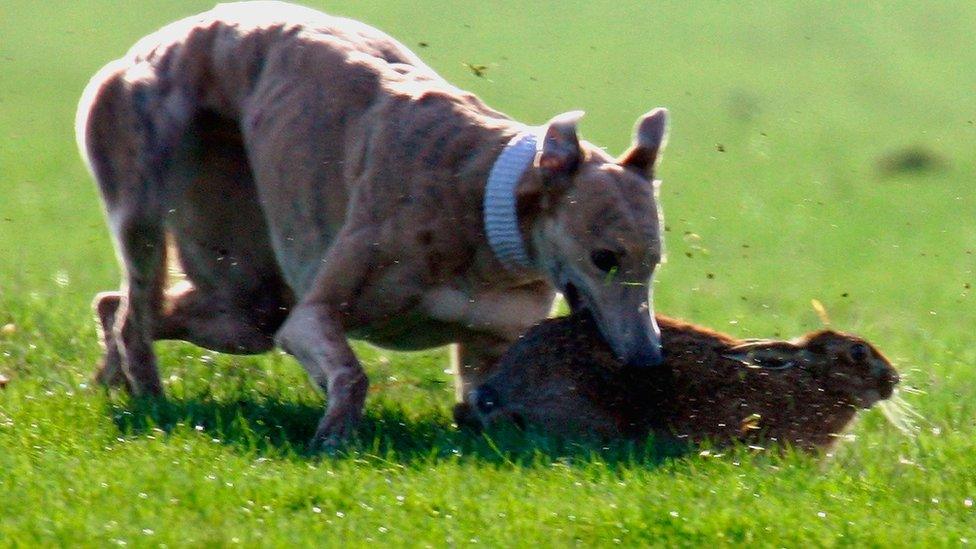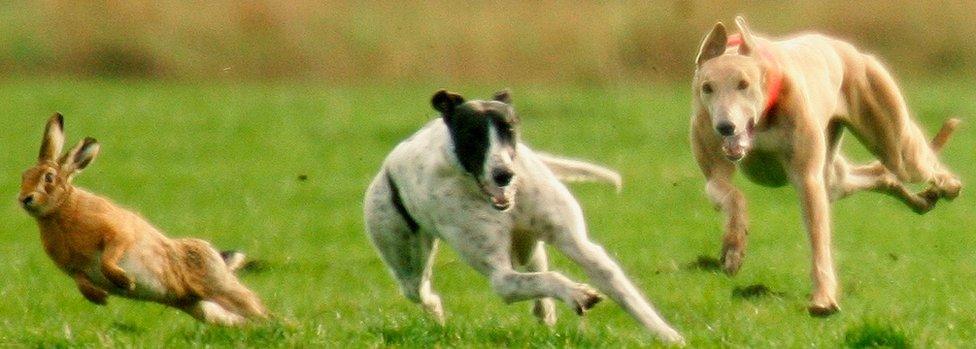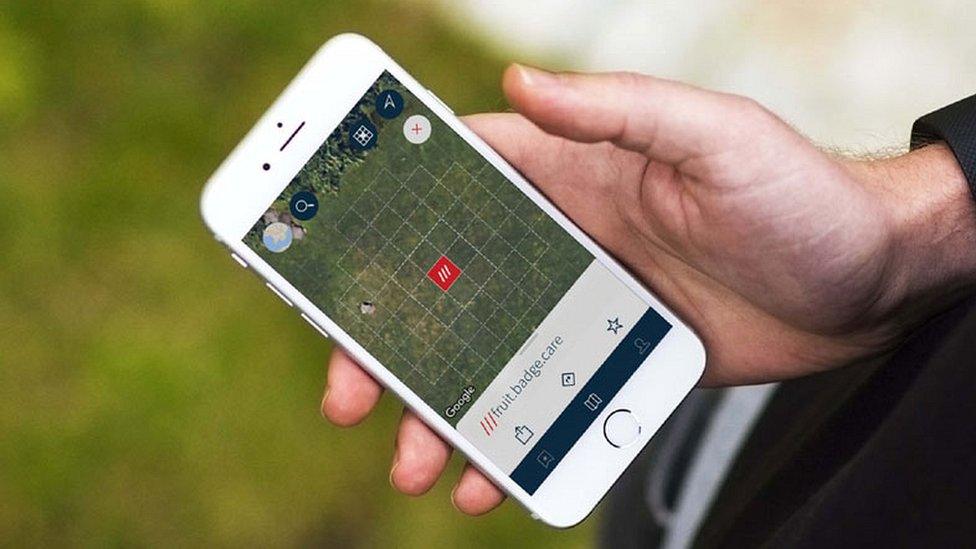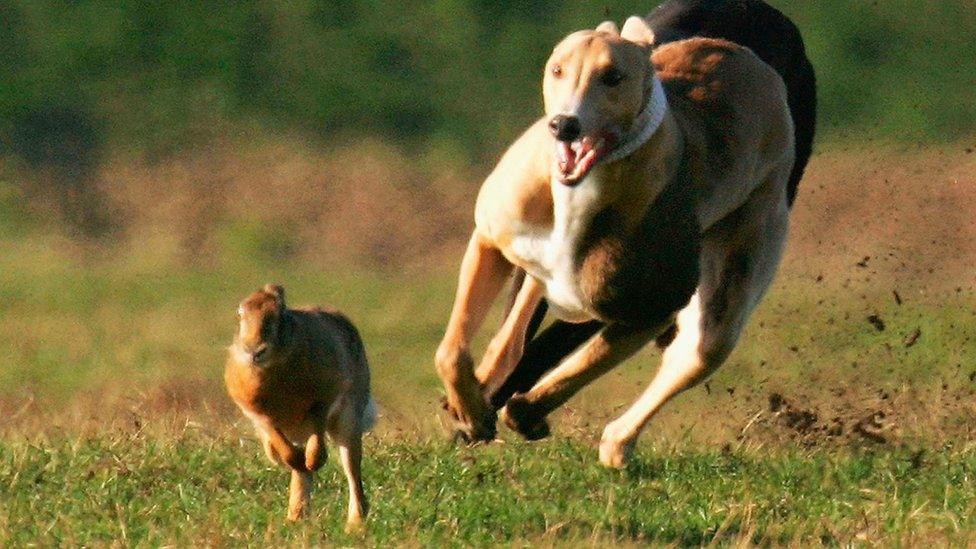Lincolnshire hare coursing: Rural residents' help 'vital'
- Published

Coursers tend to hunt with their dogs in rural areas like Lincolnshire
People living in rural Lincolnshire have a key role in helping stop illegal hare coursers, police have said.
Reporting from the community has helped keep numbers down, as has the use of police drones and the what3words app to help pinpoint accurate locations.
The Lincolnshire force has also partnered with 20 others to share intelligence on offenders.
Figures show there were 873 incidents during the 2018/19 season and 1,043 incidents in 2019/20.
More stories from around Lincolnshire
Chief Inspector Phil Vickers said: "People who live in our rural communities play a vital part in helping us gather intelligence, and we really need their support.
"The National Wildlife Crime Unit continues to support us, and this year we are ready to use legislation in new ways against hare coursers, to seize property, assets and dogs to make hare coursing as difficult, and unattractive as possible."

What is hare coursing?

The coursers will walk along the field to frighten the hare into the open
The dog catches the hare and kills it by "ragging" it - shaking the animal in its teeth
The dogs - usually greyhounds, lurchers or salukis - are on a slip lead, threaded so it can be easily released
The dead hare is usually left in the field or thrown in a ditch
Since 2005, hare coursing has been illegal throughout the UK. The Hunting Act 2004, external makes it an offence to hunt wild mammals with dogs
Source: Lincolnshire Police

NFU county advisers for Lincolnshire and South Lincolnshire, Rhonda Thompson and Danny O'Shea, said: "Lincolnshire Police have increased their focus on hare coursing and rural crime in recent years.
"There have been wins along the way and a reduction in incidents overall, which is really encouraging.
"That said, there is growing concern within the rural community that a fresh wave of incidents are on the way now that we are coming out of lockdown."

Follow BBC East Yorkshire and Lincolnshire on Facebook, external, Twitter, external, and Instagram, external. Send your story ideas to yorkslincs.news@bbc.co.uk, external.
- Published15 August 2019

- Published21 January 2017
